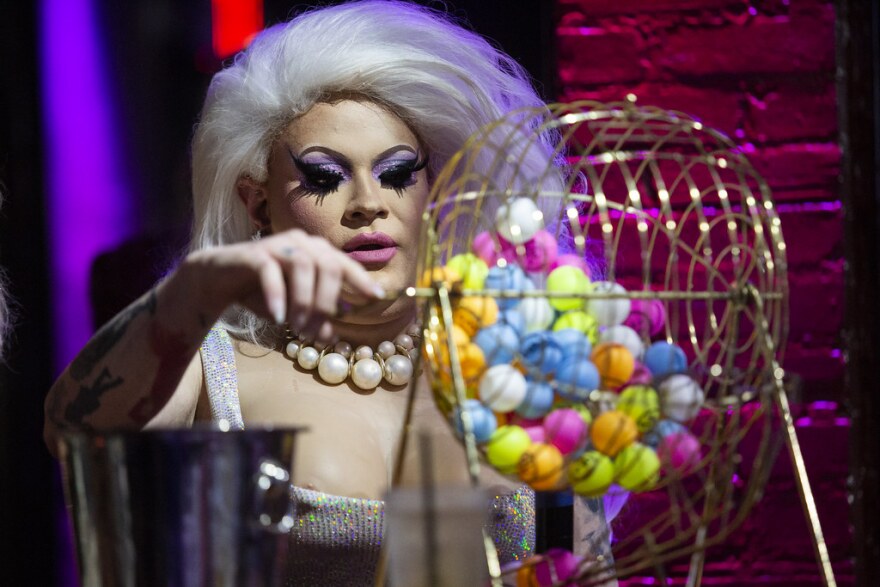This story was originally published in 2019.
Cities across the world celebrate Pride in June with parades and events to honor the queer and trans activists who put their lives on the line for gay liberation during the Stonewall riots of 1969. The event marked the start of the modern gay liberation movement.
But in Austin, the city’s “official” Pride celebration isn’t until August.
That led Stacy MacDiarmid, a self-described “enthusiastic ally” of Pride, to ask our ATXplained project: Why?
MacDiarmid is so enthusiastic, she bakes a Pride-themed dessert every year. Though the question has been on her mind for years, she thought 2019 — the 50th anniversary of Stonewall — was the year to get an answer.
She also wanted to make sure she baked a rainbow cake on the right day.
“I texted my friends to wish them happy Pride at the beginning of June, and then we laughed because we’re not sure it’s actually Pride,” she says.
Financial, logistical and functional
MacDiarmid guessed the main reason the parade is held in August is because the college students are back then.
I called Micah Andress, the president of the Austin Pride Foundation, to see if she was right. The nonprofit has been responsible for the Pride festival and parade since 2010.
Andress says he gets the question all the time. The reasons Pride happens in August are threefold.
"There’s a financial aspect, there’s a logistical aspect and then there’s a functional aspect," he says.
RELATED | Subscribe to the ATXplained podcast
It costs $100,000 to host the festival and parade, he says. Vetted sponsors cover half the costs, but the rest comes from fundraising and ticket sales. For a smaller nonprofit like Austin Pride to be able to afford that, it has to draw out-of-towners in addition to locals, who will pay $10 to $150 per ticket.

If the parade were to happen in June like it does in most other Texas cities, he says, the nonprofit would have fewer big-name entertainers to attract festival-goers.
And entertainment is “what brings the crowds out,” he says.
Perhaps a less obvious reason the parade is in August, Andress says, is the cost for rain insurance in June. August is historically the driest month on record, so it’s a safer bet.
"We cannot afford rain insurance," he says. "It is ridiculously expensive."
MacDiarmid’s guess about why the parade is later — students! — was also correct. Andress says it takes about 400 volunteers to pull off Pride.
"Of those 400 people, about 95 to 96% of them are college-aged kids,” most of whom aren’t around in the summertime, he says.
All-year and all-inclusive
But Andress sees the parade as only one part of a year-long celebration of queer identity.
To raise money for the celebration, the nonprofit sponsors year-round events, like drag bingo, which he says can get “pretty wild.”
But he also recognizes the importance of the history of Pride. His group has held a Stonewall rally annually on the steps of the Texas Capitol since 2010. In recent years, the event has also commemorated the victims of the Pulse massacre.
“[We are] reminding lawmakers in there that we are not second-class citizens. That we are not going anywhere. Y’all can make some noise for that,” Kelly Kline said during a speech at the rally last week.

A 2015 Gallup poll ranked Austin as having the third highest rate of LGBTQ+ residents among metropolitan areas in the U.S. But state-level protections for the 4.1% LGBTQ+ population rank low compared to the rest of the country.
That’s one reason why Andress has tried to make Austin Pride as inclusive as possible since taking over as parade director in 2011. For the first year, Black Pride will be running a ticketed VIQ (“very important queer”) section with an open bar, catered food and a DJ at Austin Pride. All funds will go to Black Pride.
RELATED | Join the ATXplained Facebook group
At the end of the day, Andress doesn't see a Pride parade in August as limiting. He says MacDiarmid can go ahead and bake her rainbow cake whenever she wants.
“Pride is what you make it; it should be year-round. I don’t think it has to be in June to be celebrated,” he says. “I think it can be anytime you want it to be. Lady Gaga said that Pride needs to happen all year, and I’m like, ‘Yes, I’m so down for this!'”
Correction: A previous version of this post misspelled Stacy MacDiarmid's last name.
_








